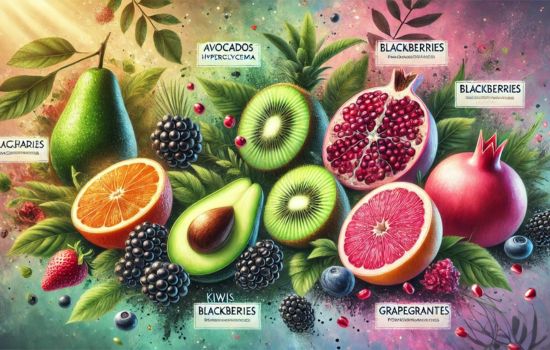Advertisements
5. Granada
Pomegranate is an exotic fruit that has shown positive effects in controlling hyperglycemia. With a low glycemic index, pomegranate helps maintain stable blood glucose levels.
Pomegranate seeds are rich in fiber, which delays the absorption of glucose in the intestine, preventing rapid glucose spikes after meals.
Advertisements
In addition, pomegranate is an excellent source of antioxidants, such as polyphenols, which have anti-inflammatory properties and can improve insulin sensitivity.
This means that the body's cells can use glucose more efficiently, helping to keep blood sugar levels under control.
Advertisements
Pomegranate is also rich in vitamin C and vitamin K. Vitamin C strengthens the immune system and fights oxidative stress, while vitamin K is important for bone health and blood clotting.
Additionally, pomegranate contains potassium, which helps regulate blood pressure and cardiovascular health.
Pomegranate seeds can be eaten fresh, added to salads, yogurts, or used as a topping on various dishes.
Pomegranate juice can also be a healthy option, but it is important to consume it in moderation due to its natural sugar content. Including pomegranate in your diet is a delicious and nutritious way to help control high blood sugar and promote overall health.

Conclusion
Managing hyperglycemia is an essential part of diabetes management. diabetes, and including these fruits in the diet can be an effective and enjoyable strategy to help keep blood glucose levels stable.
Avocado, kiwi, blackberries, grapefruit and pomegranate not only offer specific benefits for glucose control, but also contribute to a balanced and nutritious diet, promoting overall health and well-being.
Incorporating these fruits into your daily diet can help keep glucose levels under control, prevent complications associated with diabetes and improve your quality of life.
So, try adding these fruits to your diet plan and reap the countless benefits they offer to your health.




